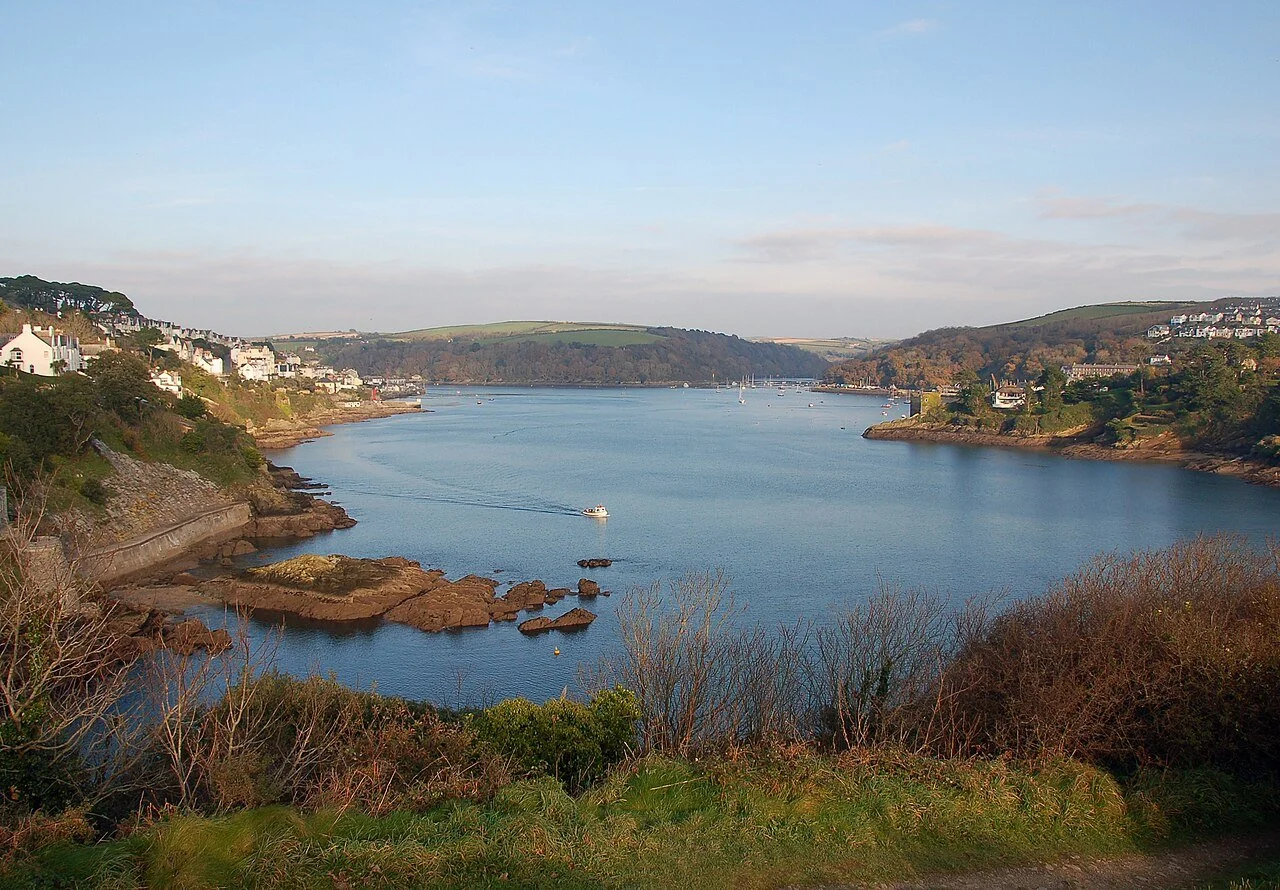The Lady of Place
From
The Voyage of Arundel
And Other Rhymes from Cornwall
By Henry Sewell Stokes · 1884
Source: Google Books
Henry Sewell Stokes
Photo credit: Truro City Council
THE LADY OF PLACE
I.
Five hundred years and more ago,
Third Edward rules us then,
From Fowey near fifty ships set sail,
With nigh eight hundred men :
No other Port on England's coast
An equal force could bring ;
For Calais when they weigh'd, they form'd
The Vanguard of the King.
II.
And when of Henries reign'd the Sixth,
The ships of Fowey went forth
To every sea, and every shore
East, West, and South, and North ;
And the Bay was like a forest
For tall and stately masts,
And flags of many countries
Came with the veering blasts.
III.
The Fowey men grew so haughty
They would no bonnet veil ;
But the folk of Rye and Winchelsea
Would make them dip the sail.
And on a day, to settle it,
They fought both man and boy ;
And from that time those Cornish lads
Were called Gallants of Fowey.
IV.
Still more they fell to merchandise,
And prouder still did grow :
Their cruisers harass'd all the coast
From Cherbourg to Bordeaux.
But one dark night, when scatter'd far
Their ships on Ocean wide,
A sound as from a cloud of sails
Came with the flowing tide.
V.
The Lady of Treffry remain'd
In her large mansion lone ;
Her husband to the distant chase
With horse and hounds had gone.
The watch-dogs bark'd ; then shouts-then shrieks
Rose from the sleeping town ;
The vengeful French, like unloosed fiends,
Went ranging up and down.
VI.
Here torches flash'd, there sledges crash'd,
Such was their devilish game ;
And soon from many a house-top
Burst out the crimson flame.
As in broad day men saw the bay,
The ships, the shores, the towers ;
Then blinding clouds of smoke came down,
And red flakes fell in showers.
VII.
But she was there, that Lady,
To play no woman's part ;
Though the great sufferings of her town
Had pierced her gentle heart :
And Fowey men, like a wall of steel,
Though few, about her stood ;
While some, to cut the ships adrift,
Crept out upon the flood.
VIII.
And on the wharves, and in the streets,
Was heard the awful clang
Of swords and weapons strange ; with fists
Some on the Frenchmen sprang ;
Some met them with a Cornish grip
They never more forgot ;
And many found the cornish hug
Much rougher than they thought.
IX.
But other were the scenes and sounds
Of that unhappy night,
When, like a flock of bleating lambs,
By the burning roof-trees' light,
Mothers their wailing children led
Through wood and shelter'd lane,
And up the winding moorland paths
Which to this day remain.
X.
Still calm look'd forth the Lady
From her embattled wall ;
Her presence was a power, her voice
Thrill'd like a trumpet's call.
Meanwhile the bells kept tolling,
To rouse the country round ;
And spires and turrets far away
Sent on the warning sound.
XI.
And long before the daylight
Fires lit the lofty peaks ;
And men were moving in the vales,
And stirring in the creeks.
Small need—so brave that Lady proved,
The Fowey gallants so true,
That at cock-crow, like baffled wolves,
The Frenchment all withdrew.
XII.
Whether a panic seized them,
I will not pause to learn ;
They had done enough of mischief,
And might perhaps return.
But, when they went to find their ships,
The Fowey folk laugh'd outright ;
For some were scuttled, some aground,
Some drifting out of sight.
XIII.
Next morning with his Posse
The Sheriff came at dawn ;
The flames still roar'd, the French on board
The ships they saved had gone :
Three cheers, then, for the Fowey gallants !
For the Lady three times three !
And, if the French should come again,
May our wives as fearless be !
XIV.
Changed is the world, much changed since then,
Yet will they come once more ?
Who knows—or cares—or fears ? who doubts
We'll serve them as before ?
Grace Darling died but yesterday
And others of her race
May yet be found to emulate
That Lady brave of Place.
Banner image: Fowey estuary by Nilfanion, CC BY-SA 3.0, via Wikimedia Commons

